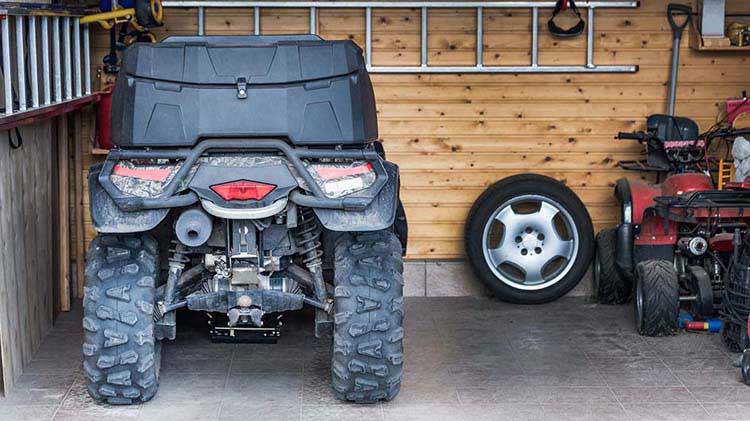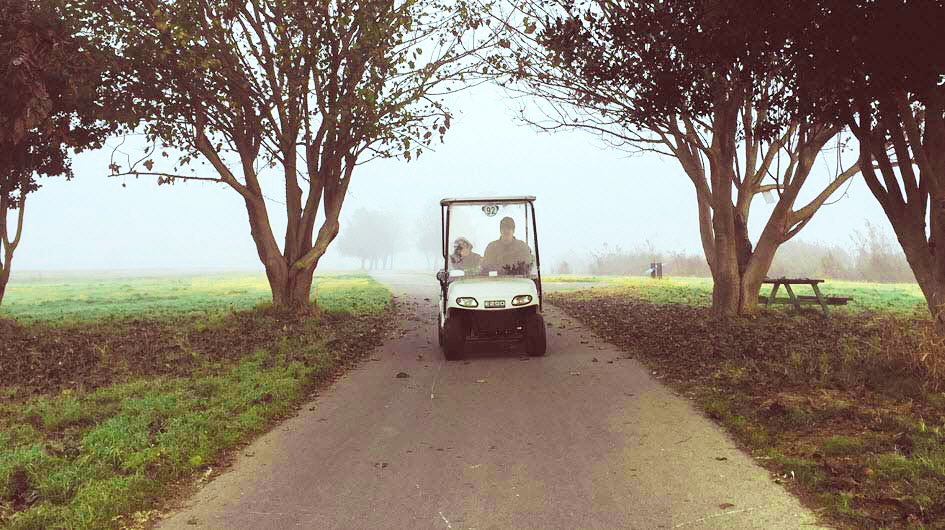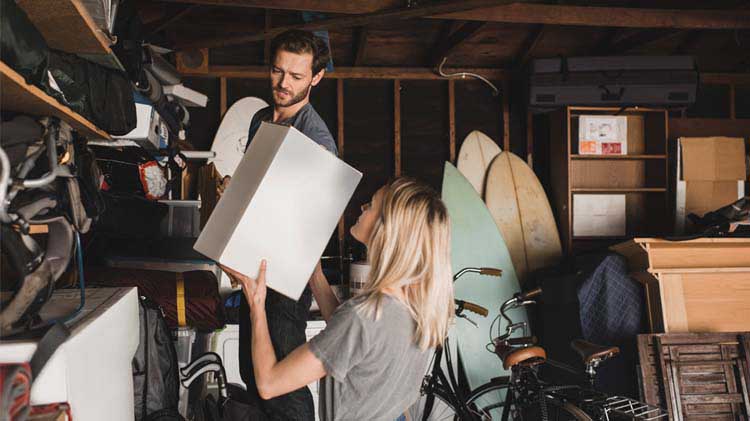Tips for UTV or ATV winter storage
Preparing your ATV or UTV for winter storage can help protect it and make it easier to get your off-road vehicle back on the trails when you're ready.
Winterizing your all-terrain vehicle (ATV) or utility vehicle (UTV) can help prepare it for long-term storage. Check your owner's manual for ATV or UTV storage tips specific to your vehicle. Consider these tips to help get you started.
Before you winterize ATVs or UTVs, think about:
- Location: Decide where you'll store your ATV or UTV — a garage storage area, storage shed or other location.
- Cost: Determine how much you are willing to spend on UTV or ATV storage.
- Utilization: Consider if you'll want to ride during the winter season or keep your ATV or UTV stored full-time.
Have an agent contact me
with a quote
Prepping for winter ATV and UTV storage
- Contact your insurance agent to discuss whether your current policy includes coverage for off-road or recreational vehicle use.
- Make necessary repairs to any damaged components and complete your routine UTV or ATV maintenance.
- Clean your ATV or UTV to help prevent corrosion. Remember to rinse mud and dirt from the radiator fins as well.
- Change the oil and filter, then run the engine for a short period to circulate the clean oil.
- Clean or replace the air filter and don’t forget to clean the interior of the filter housing.
- Clean, adjust and lubricate the chain, if needed.
- Clean and lubricate all control cables and pedals.
- Remove the battery and store it in a cool, dry place, safely away from children. Keep it charged, or on a trickle charger, to help maintain the battery.
- Remove the spark plugs and pour a tablespoon of engine oil into the cylinders, then crank the engine to coat them.
- Fill the gas tank or add a fuel stabilizer to help eliminate harmful condensation.
- Inflate tires to correct air pressure and, if recommended, raise the ATV or UTV so the tires are off the ground.
- Cover all open areas including pipes and intakes, to help prevent small animals crawling in and possibly chewing parts of your vehicle. Remember to reopen them when it is time to use your ATV or UTV.
Storing your ATV or UTV
Consider purchasing a quality waterproof UTV or ATV storage cover, especially if your vehicle will be stored outside. If you can store it inside the garage or in an ATV storage shed, the cover may provide additional protection against animals, dust and humidity. As stated before, keeping your vehicle off the ground, and on blocks, may help protect the tires and suspension.
Now that you have read about storing your ATV/UTV for winter, you may be interested in snowmobile safety tips, how to be safe on the ice or how to prepare your car for winter.




